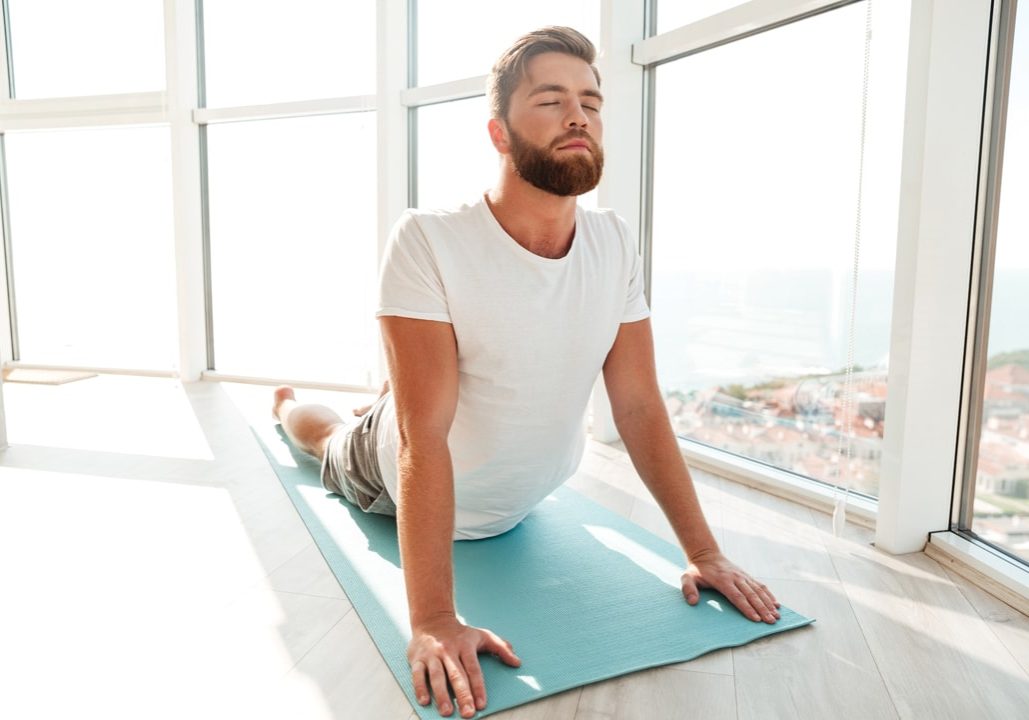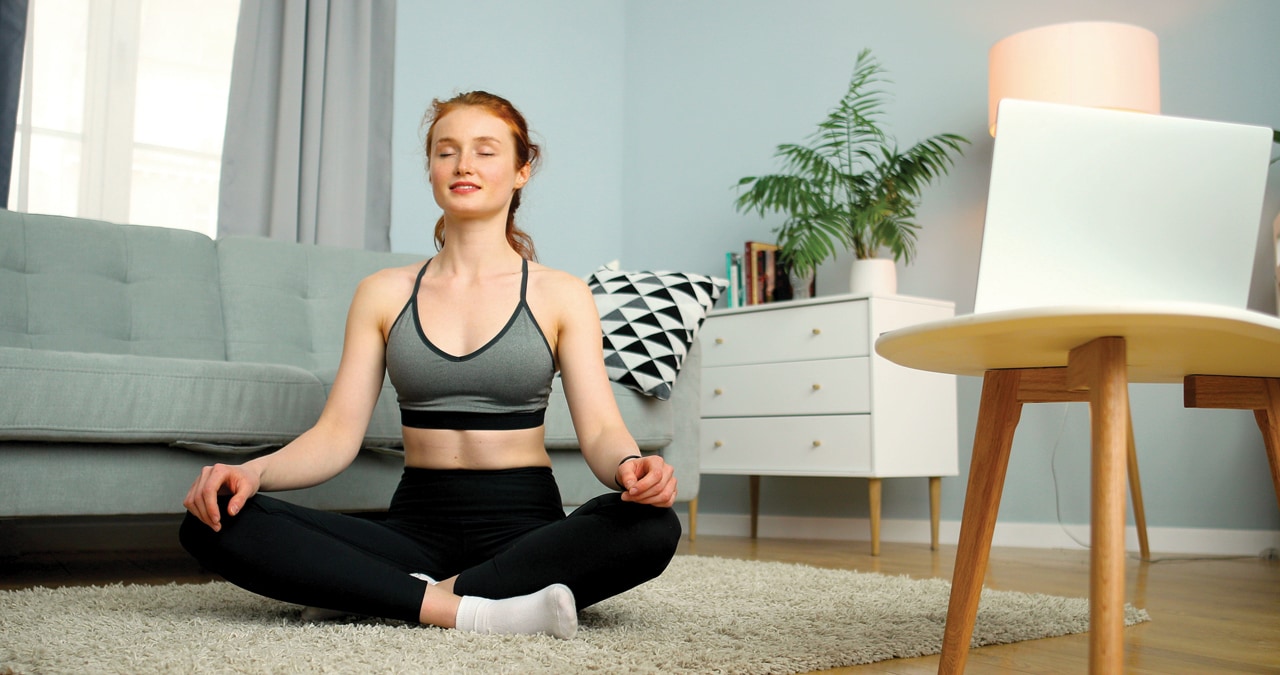
Why you need yoga in 2021
3 important (and fascinating) science-proven reasons you need yoga in 2021. By Kim Weeks and Sat Bir Singh Khalsa
The list of science-proven health benefits of yoga has grown by leaps and bounds over the past few years. This generation and those to come will benefit from behavioural studies funded to assess how yoga — practiced increasingly by most demographic groups — helps us live and lead better lives, according to the US Centers for Disease Control and Prevention and National Institutes of Health.
With yoga in 2021 now upon us (after thankfully bidding farewell to 2020!), here are three pieces from Yoga Alliance’s library of scientific research that show how yoga practice strengthens the body and settles the mind. With lots of change undoubtedly still to come, stressors are likely to continue piling on us.
Yoga can be your proven anchor in both good and bad times, enhancing the positive and reducing the negative.
Yoga’s benefits point to one main thing: the power of practice. Done regularly, yoga in 2021 not only works out the knots in your back and hamstrings, it also calms your mind, boosts your immune system, and helps you sleep. Even in the midst of big transitions, here are three specific ways science shows how you and others benefit each time you get on the mat or are yogic off the mat.
1. Yoga reduces stress and increases happiness and calm
While stress becomes a global health crisis (many call it an epidemic of its own), science teaches us that yoga offers a wide variety of posture, breath, meditation, and relaxation techniques that address stress in every way. Biomarkers of stress, such as increased heart rate, blood pressure, and cortisol levels, and even shortened breath, all can improve after just one yoga class. Yoga practice also puts you into a better mood; when you feel your own happiness on the inside, your reactions to stressful situations are smoother and more balanced on the outside.
Yoga also breaks up the stress response in the body by building in moments to pause and observe. Whether it’s in a particular pose or through 20 minutes of pranayama, yoga develops one’s ability to monitor and create space for any feeling, thought, or sensation that might pass through. This process then empowers better assessment and decision making over what action to take or even what thought to have next.
One participant in a recent study on yoga and mindfulness summarised yoga’s effects this way: “[It was a] huge shift in how I process stress, both professional and personal. I deepened my self-care practices…[and the practice] lifted me out of burnout.”
Using micro-changes in mental states that create their own sensations of calm, yoga alters the stress response one action, breath, and thought at a time. This approach is also often accompanied by an overall sense of wellbeing and acceptance, which also reduces the effects of any stress exerted on you. Even the stress you generate internally is changed — a crucial point to remember (and experience!) as we move through the rough waters of the pandemic’s second year.
2. Yoga strengthens immune function
Yes, according to scientific research, yoga improves the functioning of your immune system in several ways. First, by reducing the stress you both perceive and experience, your immune system is bolstered at the cellular level. The relaxation exercises that happen in a yoga class — think savasana, yoga nidra, and even the concept of relaxing in any pose — showed the strongest immune improvement outcomes in a study comparing them with several other mindbody practices.
Physical postures have also been shown to have a strengthening and detoxifying effect on the body. Indian researchers at the Department of Biochemistry at New Delhi’s GB Pant Hospital hypothesized in a study on stress and immune function that many poses carry

“fresh blood to the internal organs while rejuvenating the nervous system and lubricating the joints, muscles, and ligaments.” Specifically, they suggest, inversions, forward bends, chest and lung openers, and restorative postures bring not only mental balance but also immune system support via the shape you take in the pose. Put together, these ways of practicing — ensuring there is a strong component of relaxation in your practice and embracing immune-supportive postures — will leave you better able to face any potential compromise of your body’s main defenses against getting sick.
3. Yoga promotes better sleep
Perhaps one of the most noticeable and immediate effects of yoga is that it encourages healthy sleep. The direct line from good yoga to good sleep is the easiest to witness: The more relaxed you are overall, the likelier it is that you will get to sleep and stay there. A systematic review published in Sleep Medicine Reviews found “improvement in sleep quality” across nearly all the studies it analysed. Also, who hasn’t felt totally refreshed after a deep savasana? Another tick for yoga practice.
The second effect is subtler but even more interesting. The more regular your yoga practice, the greater your chances are of making good choices such as opting in on a good night’s sleep. It isn’t even that your more relaxed body will take you to a deeper and better slumber, it’s that your yoga-practiced mind will prioritise other choices in your waking life — less caffeine, healthier eating, more nurturing relationships — that reinforce the decision to ensure you get good, solid night-time rest. It bears repeating, especially when faced with stressful times, that healthy behaviours, yoga, and mindfulness all tend to align with one other. And, let’s not forget what science tells us are the invigorating and important benefits of sleep.
While scientists agree that society is undergoing a self-imposed sleep deprivation epidemic, yoga may help steer you away from choosing this reality for yourself, which (see #1 and #2 above) could lead to still worse outcomes.
In the end, like begets like. Through its ability to change your brain, body, and breath all at once, yoga empowers you to feel less stress, improve your immune function, and get better and more balanced sleep. The benefits not only speak for themselves, they accrue with each practice. Time and again, yoga is proven to be a steady salve, one breath at a time. Science continues to study these actions, shining more light on an ancient practice of both steadiness and ease. Enjoy yoga in 2021
Authors: Kim Weeks is a certified Iyengar Yoga teacher and wellness expert. She is also the founder of a wellness consulting and education company whose mission is to foster transformation in work and life.
Sat Bir Singh Khalsa, Ph.D. is the director of yoga research for Yoga Alliance and the Kundalini Research Institute, and an assistant professor of medicine at Harvard Medical School.


